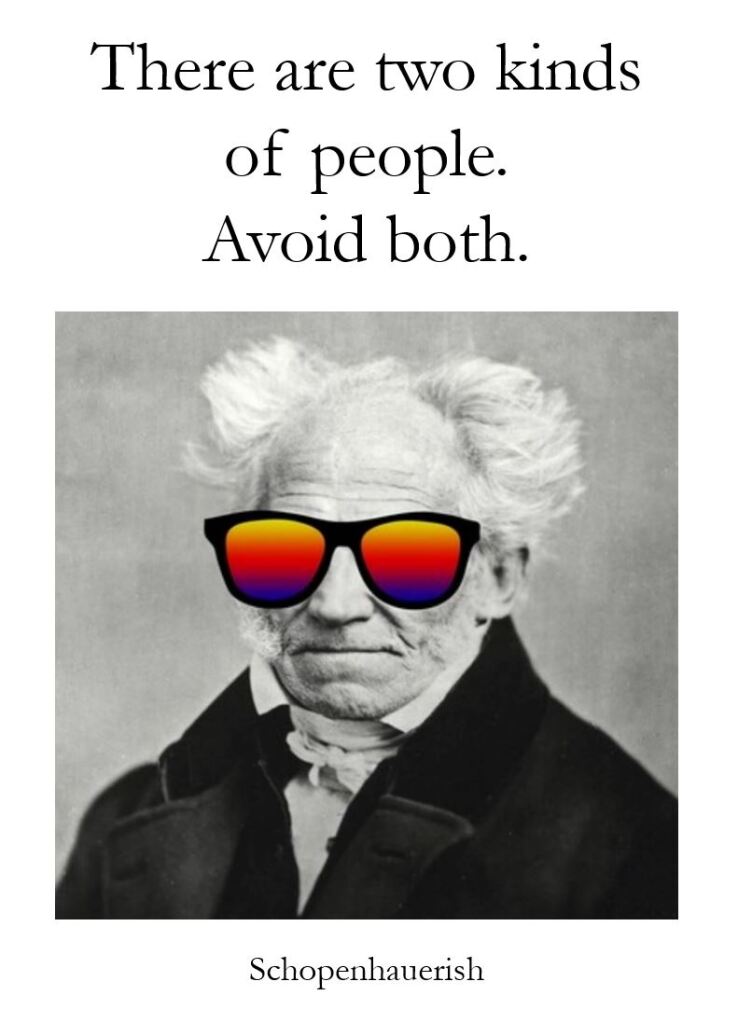
He did say: “The majority of men … are not capable of thinking, but only of believing, and … are not accessible to reason, but only to authority” (Parerga and Paralipomena, 1851)

[Alternative translation here: “For the average man has no critical power of his own, and is absolutely incapable of appreciating the difficulty of a great work. People are always swayed by authority and where fame is widespread, it means that ninety-nine out of a hundred take it on faith alone.” (p. 102)]
Related: In Chapter 3 of Explaining Postmodernism, I cover Schopenhauer’s place in post-Kantian developments in philosophy on the way to postmodernism. I cover his advocacy of selflessness and altruism—and his bitter opposition to egoism—in my Philosophy of Ethics (Modern) course.